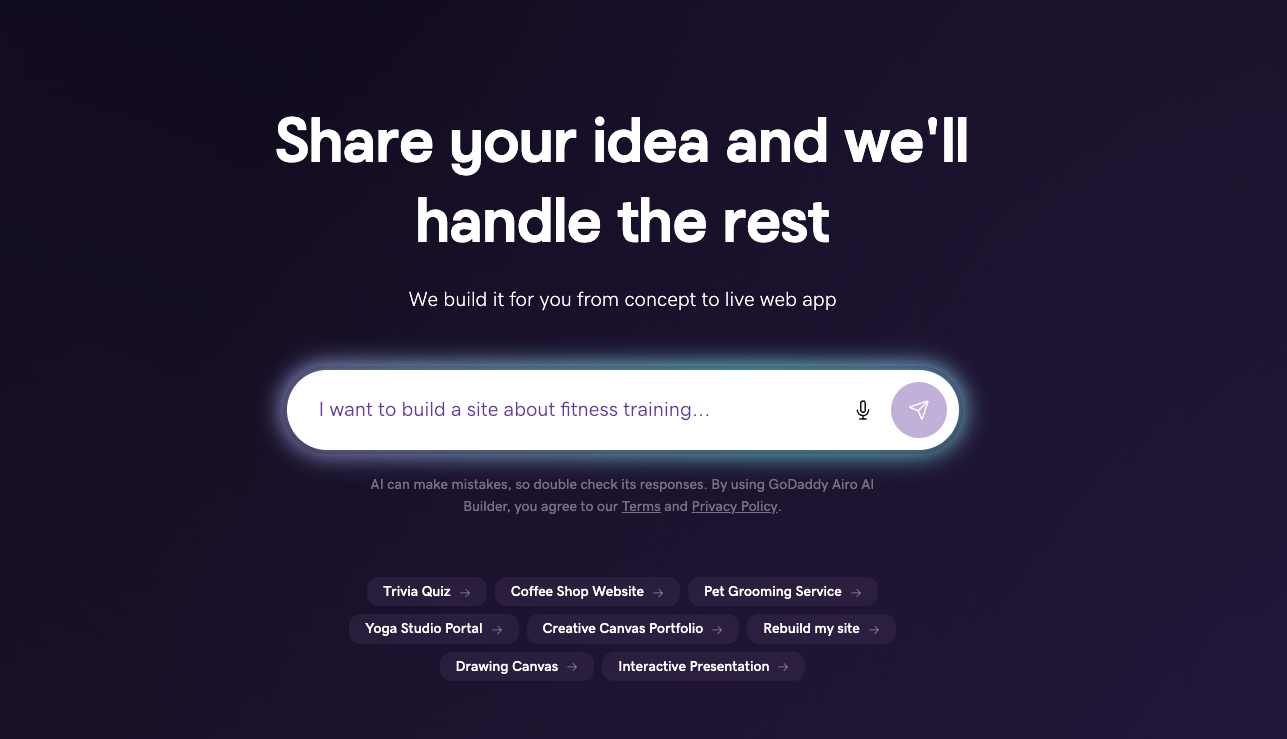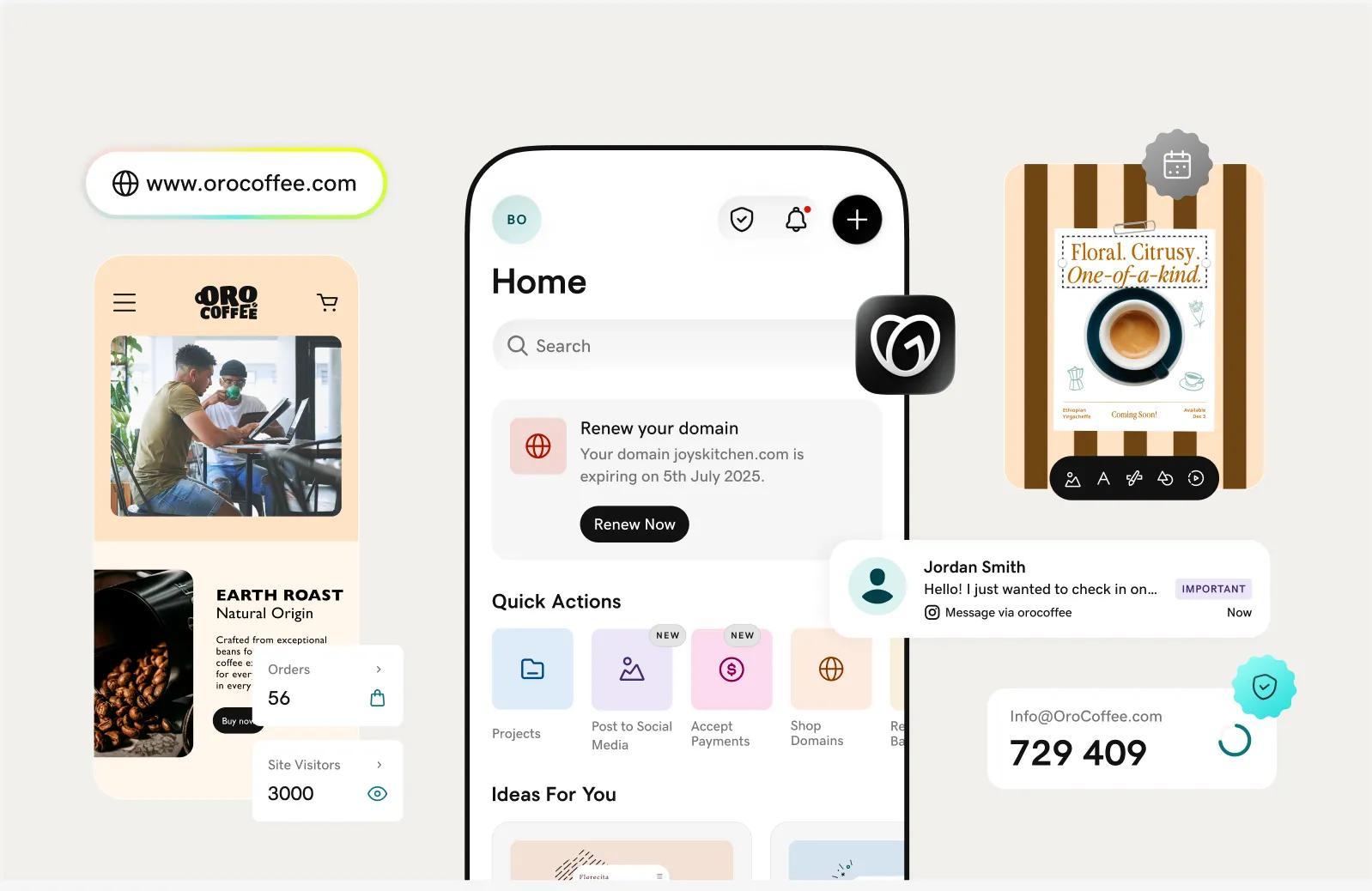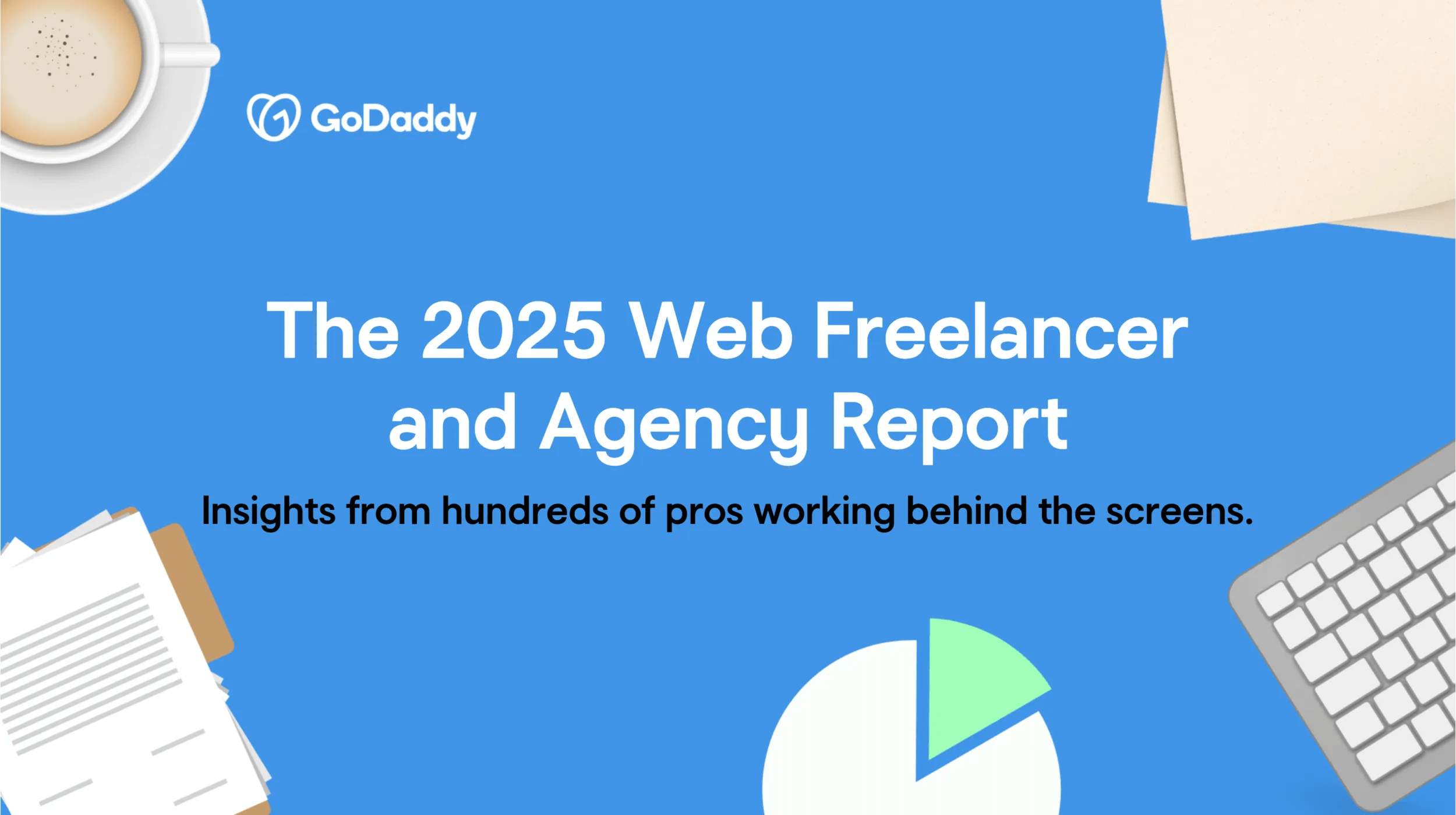Ranking on Google is undeniably hard. According to the Ahrefs study of billions of content pages, less than 2% of all pages get more than 10 organic monthly visits from Google.
Shocking, huh?
If you feel like you're constantly spinning your wheels, constantly tweaking but not seeing results, you are definitely not alone. 49 out of every 50 bloggers are right there with you.
But don't lose hope! AI could be the lever that gently pulls you into that 2% of smart content creators who get consistent SEO traffic.
Why you shouldn't neglect keyword research
Think of keyword research as the blueprint for your content. Without it, you're essentially building a house without a foundation. You might end up with something that looks nice but fails to attract the right people and risks collapsing in the long run.
It's incredibly common for small business owners with good intentions but zero SEO experience to spend hours crafting a perfect blog post only to discover that nobody is actually searching for this topic. Ouch! All that effort, and it could have been avoided with a little upfront keyword research.
You could have the best content in the world, but if nobody searches for it, you'll never get organic traffic.
But the benefits extend beyond simply matching search queries. Keyword research helps you:
- Understand your audience: What are they truly interested in? What problems do they need solved?
- Spy on your competitors: What keywords are they ranking for? Can you write a better article and outrank them?
- Generate laser-focused content: Don't just write for the sake of sharing the information you know. Create content that delivers exactly what people are looking for and answers every possible question.
Neglecting keyword research is like throwing a dart in the dark – you might get lucky once or twice, but it's not a recipe for long-term SEO success.
What AI brings into the picture
As someone who loves keyword research probably more than writing itself, I was super skeptical about using AI tools for identifying keyword opportunities. I mean, how can a robot understand the nuances of my audience better than I can?
After trying out several AI tools, I was humbled.
Other than just being impressed, I realized I could never do what AI can do. AI-powered keyword research tools can analyze mountains of data in minutes – tasks that would take me weeks manually and I still wouldn’t get the same result.
But AI wouldn't be able to do it without my guidance, either. It's not a competition – it's a collaboration.
I now enjoy thinking of AI as my SEO superpower.
Let's break down what AI tools can offer:
- Speed and efficiency: In a matter of a couple of minutes, AI analyzes heaps of data that would overwhelm any human. Time is money, and AI frees up your time for creating incredible content rather than digging through numbers.
- Uncovering hidden gems: AI algorithms identify keyword opportunities and long-tail variations that you might never think of on your own, giving you a competitive edge.
- Understanding search intent: It's not just about the words people type – Google doesn't care about your incredible sales pitch if people are simply looking for information. AI tools help you decipher the "why" behind the search. This lets you tailor your content to exactly meet your audience's needs.
- Data-powered decisions: AI removes the guesswork from your content strategy. It lets you make informed choices based on real insights from your users' behavior, not just what you think they might be interested in.
- Trend analysis: AI tools keep an eye on emerging trends, helping you stay one step ahead of your competitors and capitalize on new opportunities.
Last but not least, I didn't take into account that search engine crawlers are also robots. And who can understand what an SEO robot wants better than another robot?
6 best practices for AI-powered keyword research
Now, let me share my favorite practical ways to use AI for killer keyword research!
1. Choose the right AI tool for your business
The world of AI-powered keyword research tools is vast and exciting, but it can also be overwhelming. Not all tools are created equal, and the best fit for your business depends on your specific needs and budget.
Here's what to consider when making your choice:
- Features: Does the tool offer topic clustering, search intent analysis, question identification, or competitor insights? What features are most important to support your existing workflow?
- Ease of use: A fancy tool won't do you any good if you can't figure out how to use it. Or if each simple action takes five clicks. Look for clear interfaces and helpful tutorials.
- Pricing: AI tools range from free options with basic features to robust suites at enterprise-level prices. Find a plan that fits your budget and allows room for scaling up as needed.
Good AI tools for keyword research:
- MarketMuse: A comprehensive SEO suite best for in-depth content optimization and building content strategies. Has a limited free plan.
- Scalenut: Generates average AI content but is pretty good at keyword analysis and grouping keywords into clusters.
- Keyword Insights: Focuses on powerful AI-driven keyword analysis for identifying keyword clusters and matching the search intent perfectly.
- Frase: A more affordable alternative to MarketMuse that helps you research, write, and optimize content with multiple AI routines.
Important note: It's a good idea to test a few tools with free trials or demos before committing. Find one that resonates with the way you work and delivers the insights you need.
Related: AI-powered tools to use to help your website ranking
2. Think in clusters
For too long, keyword research was focused on isolated terms. It was common to write random articles in your niche and hope something would rank.
But Google has evolved, and so should your strategy. If you don't adapt to the ever-changing wishes of our search engine gods, you'll be inevitably hit by one of the major algorithm updates.
To build true authority and rank consistently, it's important to understand both topic clusters and keyword clusters.
Topic clusters: Building topical authority
A topic cluster is a series of interlinked articles that fully explore a central topic. For example, if your blog is about vegan baking, you might create topic clusters like:
- Essential vegan baking ingredients
- Vegan baking substitutions
- Best vegan desserts
Each article within a cluster links to the others using relevant anchor text, creating a strong network of topically relevant content.
This approach signals to Google that you're not just throwing random keywords at the wall but demonstrating expertise in a specific area.
Pro tip: Focus on one cluster at a time instead of trying to build 10+ different clusters at once. A jack of all trades is a master of none, which is what Google will gladly tell you via nonexistent rankings.
Think about this: What do you want to be known for? Then, create clusters of content around each idea.
AI SEO tools analyze your website and group your existing content into clusters. They can also suggest additional topics based on what your competitors are ranking for.
Keyword clusters: Covering all bases
While topic clusters address the big picture, keyword clusters help you dominate individual articles. Instead of writing scattered articles targeting slightly different keywords that, at their core, all answer the same question, identify a primary keyword and its closely related variations.
For example, instead of creating separate articles for "affordable bathroom remodel," "bathroom remodel on a budget," and "cheap bathroom remodel ideas," target one main keyword and incorporate the others organically into the content.
This way, you're offering your readers a comprehensive resource that tackles all the variations they might search for. Google is smart enough now to recognize that these keywords are semantically the same and will potentially rank you for all of them if the content itself is good quality.
During the initial keyword research, some AI tools can automatically group similar keywords into clusters so you can hit several targets with one arrow.
Using an AI-powered SEO tool for the term “zero waste lifestyle”, the tool grouped “zero trash lifestyle,” “0 waste lifestyle” and 22 other keywords in one cluster. It’s unlikely that you would find and cluster them all yourself before writing an article, which could result in 20+ missed ranking opportunities!
3. Let mind maps guide your content strategy
Mind maps are your secret weapon for creating a laser-focused content strategy. They help you visualize your core topics, ensuring you build authority in the areas that matter and don't get distracted along the way.
Start with your main website theme and the top 3 subtopics you want to dominate, create a solid cluster of content around each, and then branch out from there.
Back to our example, if your first focus topic is "vegan baking substitutions," add it as a branch on your mind map and list potential article titles under each branch. You can either brainstorm them yourself or let an AI tool give you some initial ideas.
Here are some of the popular AI mind-mapping tools:
- Ayoa: Offers colorful, interactive AI-supported mind maps with multiple project management and team collaboration features.
- Miro: A collaborative whiteboard-style tool popular for visualizing brainstorming in different ways, including mind maps.
You don't necessarily need a separate tool for mind mapping! AI-powered task managers, such as Taskade and ClickUp, often have this functionality, as well as some popular team collaboration tools you may already be using.
A word of warning: Ideally, do this before you start researching specific keywords. This will help you stay focused and not follow shiny keywords into the rabbit hole (talking from experience here). It's much better to be an expert in a handful of specific topics than to spread yourself too thin, trying to compete for everything and end up with no traffic at all.
Refer to your mind map at least once a month to make sure you stay on track!
Related: Incorporating AI into your small business marketing strategy
4. Keep an eye on trends
AI tools trained to identify trends early can give you a serious competitive advantage. Websites that talk about new things first quickly become well-known brands in their niches.
Over time, people start to remember your name because they often get new insights from you before anybody else.
Traditional keyword research tools often miss the mark here – new topics might not show up for months or simply show a search volume of 0. Most SEO professionals and bigger companies would disregard those keywords, and that's your chance!
Be ahead of the curve! Leveraging trends is how you become the go-to website in your niche.
If you know your industry well enough, you'll develop a gut feeling for which zero-volume keywords are worth covering.
Over the years of writing SEO content, I've seen dozens of "0-volume" topics bring in thousands of monthly visitors through keyword variations – simply because nobody else bothered to write about them.
AI and other tools for trend discovery:
- Exploding Topics: Surfaces rapidly growing topics before they hit the mainstream.
- Trend Hunter: A massive collection of insights into consumer trends and innovations.
- Pinterest Trends: Data-driven insights from Pinterest about emerging trends across various niches.
- Hubspot Trends: A weekly newsletter by Hubspot that offers valuable insights into trending searches and topics.
Related: Top online trends for 2024
5. Use semantic SEO tools for more keyword opportunities
When you have a target keyword in mind and your article ready around it, content optimization tools help you improve the article so it ranks for more similar keywords. They use the power of AI to do a semantic analysis of your text, identifying missing terms and potential opportunities.
Put simply, these tools compare your article to the top-ranking competitors and tell you which word combinations they all have, but you don't.
This technique alone won't rank your article higher if your content is meh. But it might give you just enough edge for ranking when your article is compatible with others in quality and authority.
As I showed in my detailed NeuronWriter review, AI tells you exactly which related terms robots consider relevant for this topic. Adding them to your article will likely boost your rankings and result in a nice uptick in traffic.
These tools will also tell you if you are overdoing some keywords and risk being penalized for keyword stuffing.
Pro tip: Instead of spamming the article with an exact match of your keyword (a technique that was effective 15 years ago but doesn't work anymore), make a list of keyword variations and mention each one once. This will help search engines better understand what your content is about without marking it as spammy.
6. Make performance-based decisions
Most of the decent AI tools for SEO allow you to connect your Google Search Console for personalized insights and suggestions.
The thing is, every website is different, and with hundreds of ranking factors, Google doesn't treat any two websites the same.
Regularly looking at your analytics will help you understand which topics "work" for your particular website so you can write more content around them.
This rule actually applies to everything in business: Do more of what already works instead of constantly trying new things.
Being able to clearly see in which subtopics Google favors your content allows you to steer your content strategy going forward. Capitalize on your best-performing keywords by creating more supporting content, reinforcing your authority in the niche.
Final thoughts
Don't fear the rise of AI in SEO. It's here to give you an edge, not replace your creativity and expertise. Embrace this powerful collaboration!
AI uncovers opportunities and patterns you might miss, freeing you to focus on crafting the incredible content that will truly resonate with your audience. Contrary to popular opinion, I believe the future of SEO is bright, and those who harness the power of AI-powered tools in a smart and strategic way will keep dominating the search results. Read more practical SEO tips here.
Disclaimer: Opinions belong to the author alone and do not necessarily represent the views of GoDaddy. All trademark rights belong to their respective owners. Third-party trademarks are used here for demonstrative and educational purposes only; use does not represent affiliation or endorsement.







